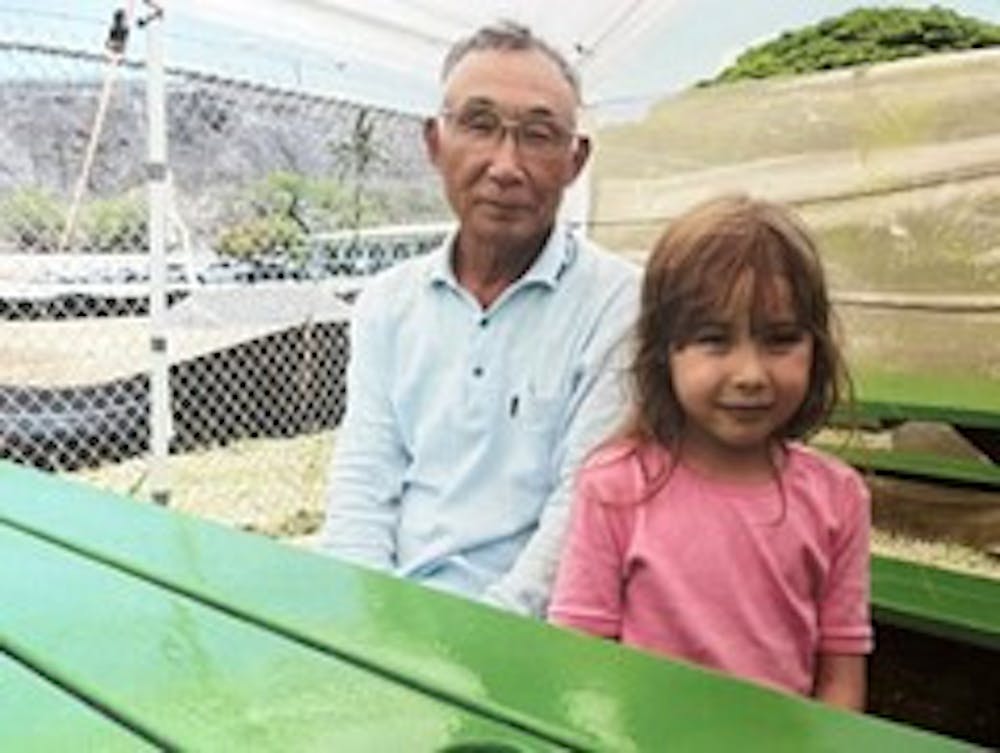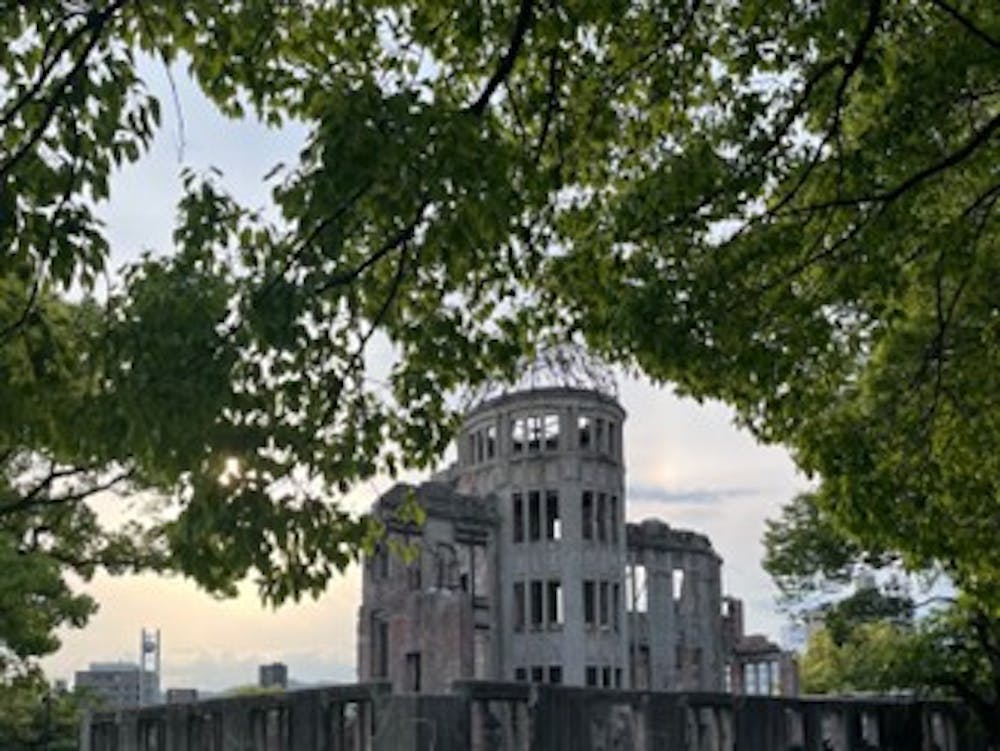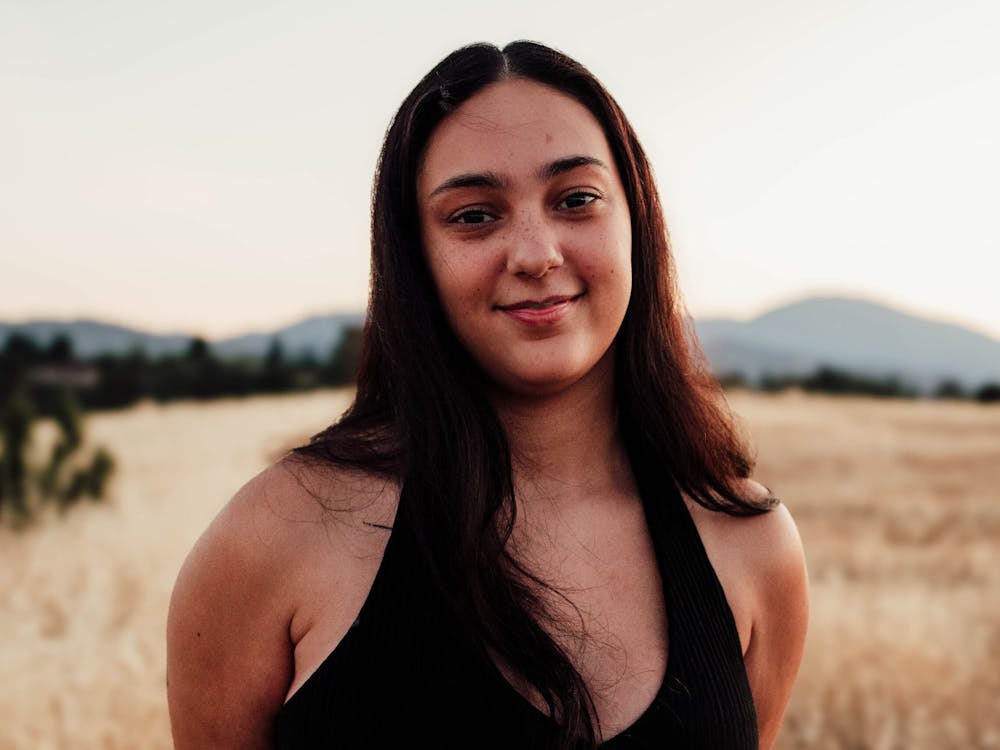The summer of 2023 was a great season for uncomfortable films to watch with your Japanese father. I was unsure of how he’d react to “Oppenheimer,” considering we’d only gotten back from Hiroshima the month before. I even tried watching less controversial movies with him, but he slept through Itami’s “The Funeral” and played on his iPad while I watched “Hausu.”
Hayao Miyazaki films were always the safest bet — this I knew from years of watching Ghibli movies from my dad’s beloved DVD collection. But when our Japanese DVD player died, we lost the only way to play these films. Neither of us were capable of changing the regional settings on an American disc player. And so followed years of me dragging my dad to arthouse screenings and of him complaining that he’d never trust me to take him to another movie ever again.
Until this summer, when I rediscovered the DVD section of the library and haven’t turned back since. I checked out “Nausicaä,” and watched the movie with my dad for the first time in years.

Me and Ojiichan. Photo courtesy of Camille Kuroiwa-Lewis.
I love “Nausicaä” for the bridge it has built me across the Pacific Ocean. But I love it even more for its condemning messages regarding sexism, the environment and nuclear war.
For those who have yet to watch Miyazaki’s greatest film: “Nausicaä” is a far-future dystopian in which war has rendered the majority of Earth uninhabitable. Nausicaä is the princess of the Valley of the Wind, one of the few places left safe from an encroaching toxic forest. The primary conflict ensues when Nausicaä’s father is murdered by the militia of another kingdom – one seeking to take over the planet from a class of violent insects by reintroducing a bioweapon of mass destruction: an egg whose species caused the first war.
Though heavy at times, “Nausicaä” remains empowering and hopeful at its core. In the end, Nausicaä is revealed to be the prophesied savior of the world, whom others initially thought would be a man. Along the way, Nausicaä befriends a fox, Prince, and an entire nation of insects. She serves as an advocate for peace, refusing to harm even those violently blinded by anger.

Part of a basement left undestroyed by the Hiroshima bomb. Photo courtesy of Camille Kuroiwa-Lewis.
Even though “Nausicaä” has a clear conflict, the film offers no clear antagonists for viewers to hate. “Nausicaä” finds no winners or losers when those who suffer most in war are innocent casualties on both ends, civilians – especially women and children – and nature.
Though there are few today who would debate that argument, in 1985 the US released a heavily edited version of the film titled “Warriors of the Wind.” The edits made are now considered yet another example of American censorship on foreign war media, similar to how the original “Godzilla” was co-opted by Hollywood from its initial roots as an anti-nuclear war film.
While Miyazaki films are often appreciated in the West for their aesthetic value, I think that these viewers are missing out by ignoring the environmental and humanitarian implications of his films. “Nausicaä” provides a great example for where war depictions ought to move towards, even if this means abandoning most of the war film canon we have today.

Me and my dad, moments after my birth. Photo courtesy of Camille Kuroiwa-Lewis.
I am grateful to have grown up with stories about strong women and the importance of peace. And while my dad may have hated most of the movies I’ve introduced him to, I will always be the most grateful to him – he’s the reason I grew up with Miyazaki.
Camille Kuroiwa-Lewis is a reporter for The Beacon. She can be reached at kuroiwal26@up.edu.
Have something to say about this? We’re dedicated to publishing a wide variety of viewpoints, and we’d like to hear from you. Voice your opinion in The Beacon.








